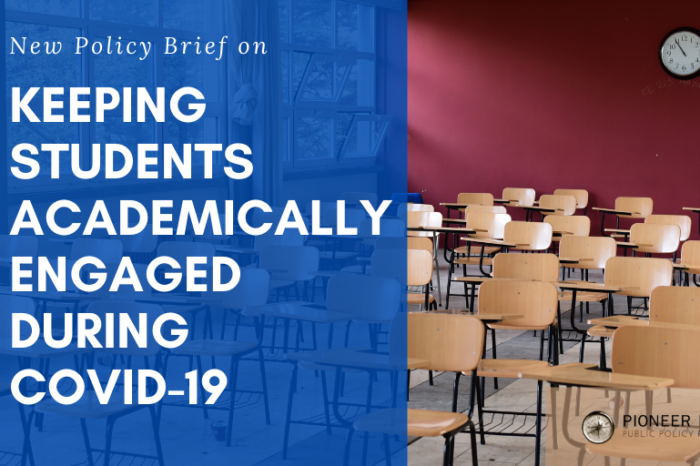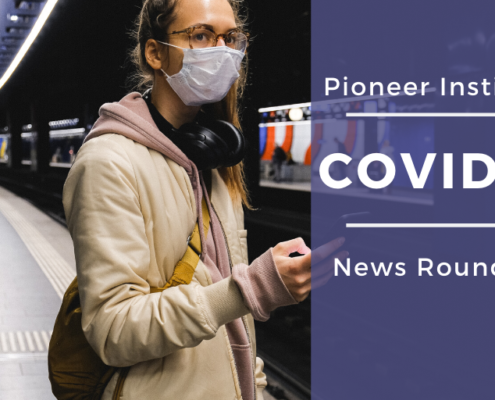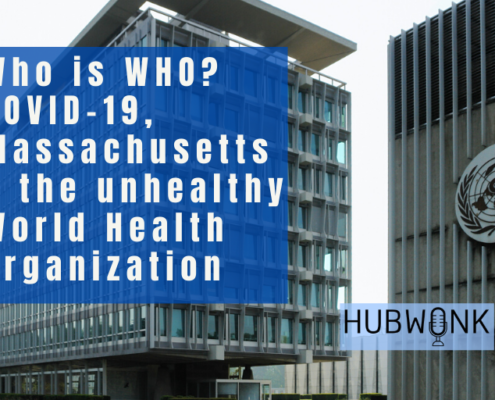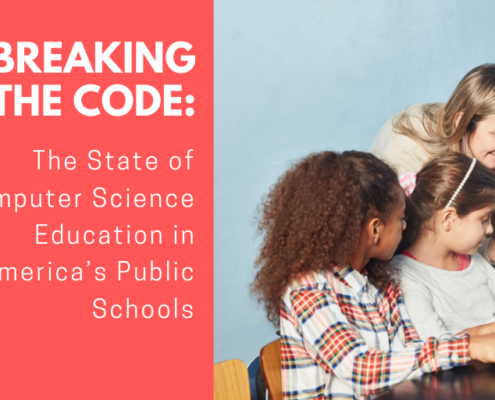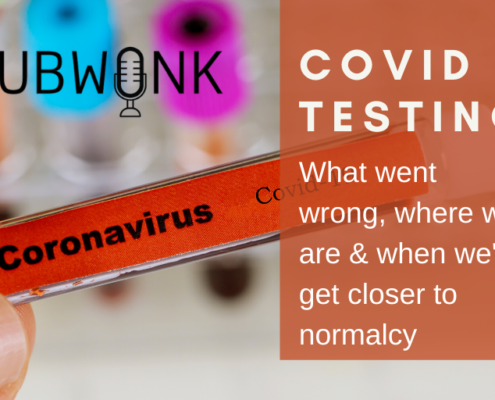New Brief Calls on the USED for School Closure Guidelines During COVID-19
BOSTON – While the states and localities, not the federal government, primarily control, fund, and have the power to drive policymaking in K-12 education, in a new policy brief, Pioneer Institute calls on the U.S. Department of Education (USED) to quickly establish comprehensive but concise guidelines for federal law around school closures.
Because of the COVID-19 virus, schools have been closing rapidly around the nation, and they are trying to transition to alternative, largely online, learning programs. But schools nationwide have delayed or even foregone alternative learning programs, citing concerns about federal law — particularly as it relates to providing equitable educational opportunities for students with disabilities.
Pioneer Institute believes that the state education department has ample leeway to address these concerns. That said, clarity from the federal education department would reduce confusion among key stakeholders – teachers, district administrators and state policymakers – so that Massachusetts students can once again get back to learning.
Co-authors David S. Clancy and Michael Sentance write, in “Keeping Students Academically Engaged During the Coronavirus Crisis – Part One,” that multiple federal laws are relevant to school closures, and USED’s COVID-19 related communication has been a flow of issue-specific guidance, requiring state personnel to work through a complex and evolving set of federal statements. Even granting the primacy of state and local governments in providing education to young people, fragmented guidance from the federal government is unhelpful and unnecessary. State education personnel should have a single go-to resource on how federal law impacts their efforts. Pioneer calls on the federal government to quickly release a single report identifying which federal laws – and which aspects of those laws – are relevant to the topic of school closure and providing concrete guidance on how schools can comply in the coming weeks.
Pioneer Institute is an independent, non-partisan, privately funded research organization that seeks to improve the quality of life in Massachusetts through civic discourse and intellectually rigorous, data-driven public policy solutions based on free market principles, individual liberty and responsibility, and the ideal of effective, limited and accountable government.
Get Our COVID-19 News, Tips & Resources!
Read Our Related Content:

